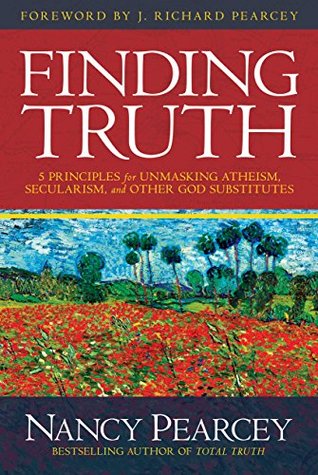More on this book
Community
Kindle Notes & Highlights
Read between
January 18 - May 18, 2019
If it’s true that Islam lacks even a clear concept of the person, this would explain why it tends to be fatalistic, emphasizing sheer submission to the will of Allah (islam means submission). As Udo Middelmann explains, “Islam is a religion of resignation.… Allah made the world, and you must accept the way it interacts with you, even should it kill you.
Historians have often wondered how such mind-staggering barbarism could emerge in modern civilized Europe. The answer lies in the power of idols. Nazi doctrine was organized around the idol of race. An individual’s race (Aryan or Jewish or Slavic) was said to determine that person’s views, character, and even worth. Communist ideology was organized around the idol of economic class. A person’s economic class (capitalist or proletarian) was held to be the all-determining factor.
The lesson is that idol-based ideologies are invariably dehumanizing, and if unchecked they lead to repression, coercion, oppression, war, and violence. In the twentieth century alone, they have taken far more lives and created more havoc than all the religiously motivated witch hunts, inquisitions, and wars of the previous centuries.
Leon Wieseltier writes, “If reason is a product of natural selection, then how much confidence can we have in a rational argument for natural selection? …
As the respected historian A. R. Hall notes, the use of the word law in the context of natural events “would have been unintelligible in antiquity, whereas the Hebraic and Christian belief in a deity who was at once Creator and Lawgiver rendered it valid.” 9
However, even the most atheistic scientist accepts as an act of faith that … there is rational basis to physical existence manifested as law-like order in nature.”
“Isn’t there a problem in explaining how the blind forces of physics brought about (cognitively) sighted humans who are able to see, and identify, and comment on, the ‘blind’ forces of physics?” How did the forces of physics create beings who transcend those forces?
When science is treated as the sole source of truth, then it becomes scientism.
When I embraced agnosticism, however, the heavens were closed. I was locked in my own mind, limited to my own tiny slot in the immensity of time and space. It seemed obvious to me that, from that puny perspective, it was impossible to know any transcendent or timeless truths. Indeed, it might be impossible to know any truth at all. After all, I could not step outside my own head to gain an objective stance to verify my ideas. The logical conclusion is not just skepticism but solipsism, the idea that all we really know is the “inside” of our own experience. 41
Elisabeth Schüssler Fiorenza says a feminist hermeneutic “does not appeal to the Bible as its primary source but begins with women’s own experience and vision of liberation.” 8
Let me end with a final quote from Lecrae: “What we need to realize is that Christianity is total truth not just religious truth. Because it is total truth, it is relevant and applicable to all areas of life.” 21


